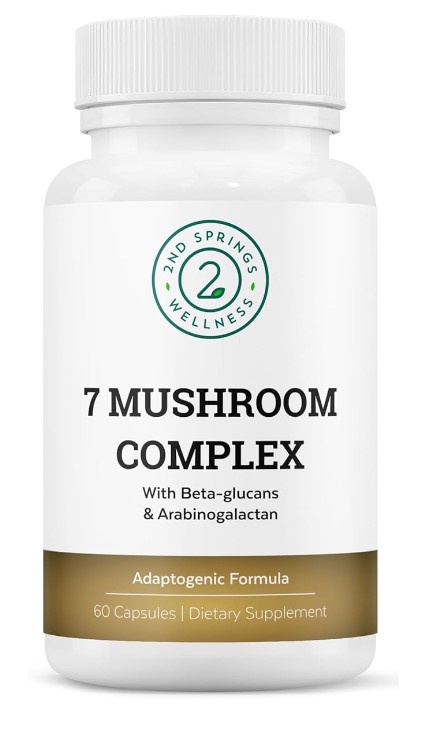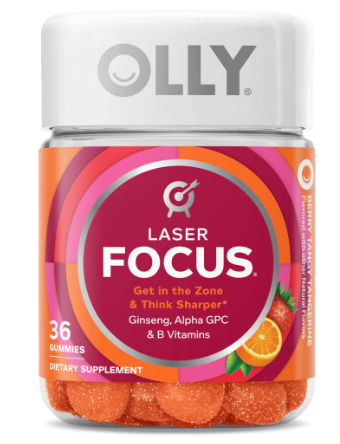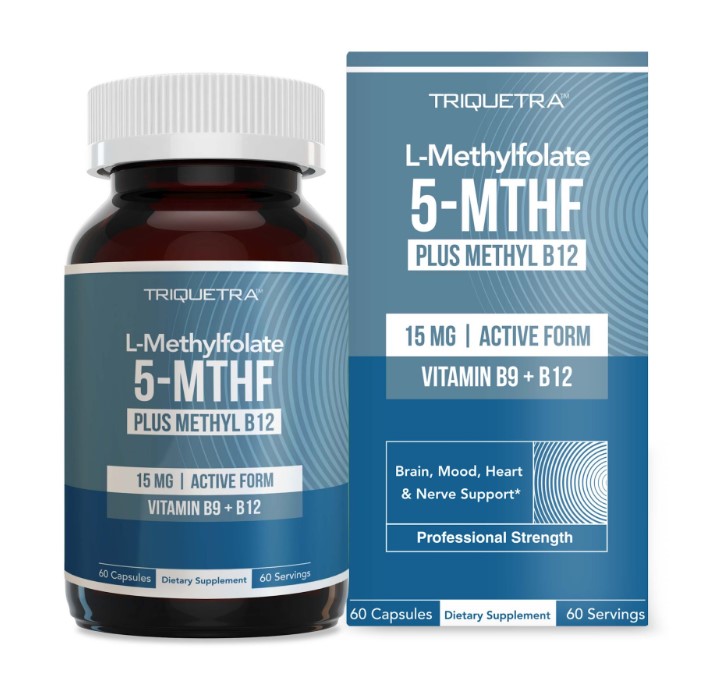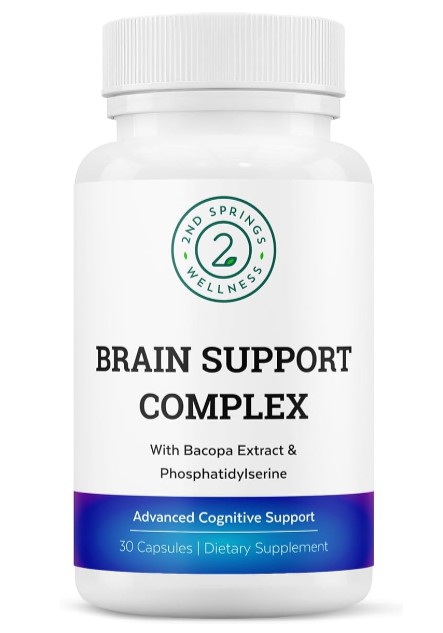Brain fog is a common term for feelings of confusion, forgetfulness, and a lack of focus and mental clarity. While it is not a medical condition in itself, brain fog is often a symptom of underlying health issues or lifestyle factors. Many people experience brain fog at some point, but for some, it can be persistent and disruptive, affecting work, relationships, and overall well-being. In this article, we will explore the causes of brain fog, natural treatments, and how it is specifically linked to menopause.
What is Brain Fog?
Brain fog can manifest in various ways, but it commonly includes:
- Difficulty concentrating or staying focused on tasks
- Memory lapses or forgetfulness
- Trouble finding words or processing information
- Mental fatigue or sluggish thinking
While occasional episodes of brain fog are normal, chronic or recurring brain fog can significantly impact daily life.
Causes of Brain Fog

There are numerous causes of brain fog, ranging from lifestyle factors to underlying medical conditions. Identifying the root cause is crucial in addressing it effectively.
1. Stress and Anxiety
When the body is under constant stress, cortisol (the stress hormone) levels rise, which can impair cognitive functions. Prolonged anxiety can also lead to difficulty focusing, memory problems, and confusion. Stressful events or long-term exposure to stress can overwhelm the brain, leading to feelings of fogginess.
2. Sleep Deprivation
Quality sleep is essential for brain function. During sleep, the brain consolidates memories and removes toxins that accumulate throughout the day. Sleep deprivation or poor-quality sleep (e.g., insomnia, sleep apnea) can severely disrupt this process, leading to brain fog the following day.
3. Diet and Nutritional Deficiencies
The brain relies on a constant supply of nutrients to function optimally. Deficiencies in vitamins such as B12, magnesium, and omega-3 fatty acids can impair cognitive performance. Additionally, consuming excessive processed foods high in sugar and unhealthy fats can lead to energy crashes and mental fatigue.
4. Chronic Inflammation
Inflammation in the body can affect the brain’s functioning. Conditions like autoimmune diseases, infections, or even a diet high in inflammatory foods (e.g., refined sugars, processed oils) can trigger chronic inflammation, leading to symptoms of brain fog.
5. Hormonal Imbalances
Hormones play a critical role in brain health, and imbalances can lead to cognitive issues. Conditions such as thyroid disorders (hypothyroidism or hyperthyroidism) are known to affect memory, concentration, and mental clarity.
6. Medications
Certain medications, especially those that affect neurotransmitters or alter brain chemistry, may contribute to brain fog. These include antidepressants, antihistamines, and medications for blood pressure and pain management.
Natural Treatments for Brain Fog
Although brain fog can be frustrating, several natural approaches may help improve mental clarity and focus.
1. Reduce Stress

One of the most effective ways to combat brain fog is to manage stress levels. Incorporating mindfulness practices such as meditation, yoga, or deep breathing exercises can help calm the mind and lower cortisol levels. Physical activity, even light exercises like walking, also promotes the release of endorphins, which improve mood and brain function.
2. Improve Sleep Quality
Getting adequate, restorative sleep is key to reducing brain fog. To improve sleep quality, establish a regular sleep routine by going to bed and waking up at the same time every day. Create a relaxing pre-sleep ritual, such as reading or taking a warm bath, and avoid stimulants like caffeine and blue light from screens in the hours before bedtime.
3. Eat a Nutrient-Dense Diet
Eating a balanced diet rich in brain-boosting nutrients can make a noticeable difference. Focus on whole foods like leafy greens, berries, fatty fish (such as salmon), nuts, seeds, and whole grains. Consider incorporating foods high in antioxidants, like dark chocolate and turmeric, to reduce inflammation and support cognitive function.
4. Stay Hydrated

Dehydration can impair brain function and contribute to symptoms of brain fog. Make sure to drink enough water throughout the day, as even mild dehydration can slow cognitive processes.
5. Cognitive Exercises
Challenging the brain through puzzles, reading, or learning new skills can improve memory and focus. Cognitive exercises keep the brain active and engaged, which helps maintain mental sharpness.
6. Supplements
Certain supplements may help alleviate brain fog. Omega-3 fatty acids, found in fish oil, are essential for brain health. B vitamins, particularly B12, play a crucial role in cognitive function, and magnesium supports neurotransmitter activity. Consult a healthcare provider before starting any supplement regimen.
Brain Fog and Menopause
One significant phase in life when brain fog is commonly experienced is during menopause. Many women report difficulty concentrating, forgetfulness, and confusion as they transition into menopause, often referring to it as “menopause brain.” I love how comedienne Leanne Morgan puts a fun (and funny) spin on the old menopause brain:
Hormonal Changes During Menopause
Menopause marks the end of a woman’s reproductive years and is characterized by a decrease in estrogen and progesterone levels. Estrogen, in particular, plays a key role in brain function. It influences neurotransmitters such as serotonin and acetylcholine, which are involved in memory, mood regulation, and cognitive processes.
As estrogen levels decline during menopause, it can affect cognitive functions, leading to symptoms of brain fog. Research suggests that this hormonal shift may also affect the hippocampus, the brain region responsible for memory and learning.
Other Menopausal Symptoms Contributing to Brain Fog
In addition to hormonal changes, other menopausal symptoms such as hot flashes, night sweats, and sleep disturbances can exacerbate brain fog. Sleep disruption, in particular, is a major factor since poor sleep quality directly affects mental clarity and memory.
Natural Remedies
Many of the treatments mentioned earlier can also benefit women experiencing brain fog during menopause. Managing stress, maintaining a healthy diet, and getting quality sleep are especially crucial during this time. Some women also find relief from brain fog through natural hormone-balancing supplements such as black cohosh or phytoestrogens like soy. Again, consulting a healthcare provider is recommended before starting any new treatment.
Conclusion
Brain fog can be a frustrating and disruptive experience, but understanding the causes can help you take the right steps to alleviate it. Whether the result of stress, poor sleep, dietary deficiencies, or hormonal changes, natural treatments like stress management, proper nutrition, and sleep hygiene can offer significant relief. For women going through menopause, hormonal shifts can amplify brain fog, but adopting healthy habits and potentially seeking natural remedies can help improve cognitive function during this life stage.
Still Feeling Foggy?
If you’re still having issues with concentrating and thinking clearly, these are our top choices for better cognitive health.
2nd Springs Wellness 7 Mushroom Complex, $22.49

2nd Springs 7 Organic Mushroom Complex is a powerful blend of nature’s finest mushrooms, including Lion’s Mane, Reishi, and Chaga, all organically sourced for maximum purity and effectiveness. Designed to support immune health, cognitive function, and overall vitality, this supplement offers a holistic approach to wellness, harnessing the natural power of mushrooms to elevate your daily health routine.
Olly Laser Focus Gummies, $13.99

Add some clarity with these focal finding brain bud supplements to help support mental alertness, focus, and healthy brain function.
Triquetra Health L Methyl Folate, $21.97

This clinically validated dosage of L-Methylfolate is the most metabolically active and bloodstream-ready form of Folate (vitamin B9). With a cofactor of B12, it is essential in supporting neurotransmitter production involved in concentration, sleep, energy, hormones, and mood. This bloodstream-ready form is crucial for those who experience methylation issues and cannot properly process folic acid, or for anyone wanting the most active form of Folate.*
2nd Springs Brain Support Complex, $32.99

2nd Springs Brain Support Complex is carefully crafted to enhance memory, focus, and mental clarity. With powerful ingredients like Ginkgo Biloba, Bacopa Monnieri, and phosphatidylserine, this formula supports cognitive health and sharpness. Phosphatidylserine specifically supports healthy brain cell function, helping you stay mentally agile and clear-headed every day.
*These statements have not been evaluated by the Food and Drug Administration. This product is not intended to diagnose, treat, cure or prevent any disease.







